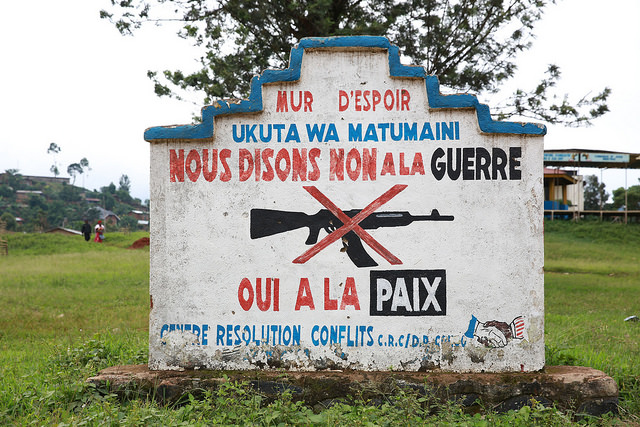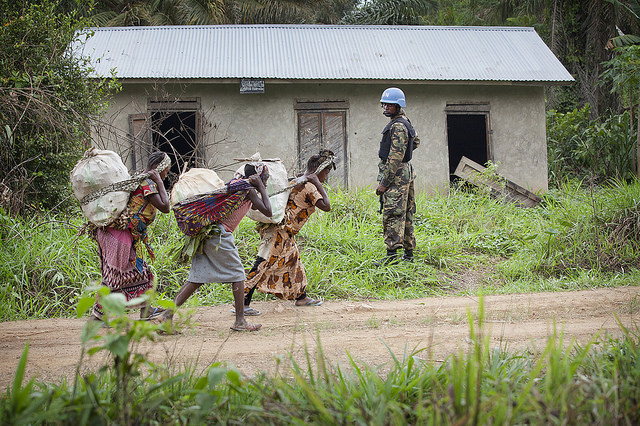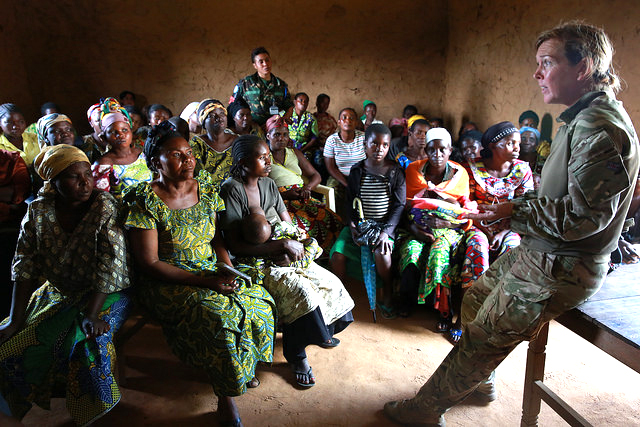The Mbuti are suffering more than ever from rampaging armies, constant attacks on their villages, and incessant warfare in the forests of the northeastern DR Congo where they live. Or used to live. A news report posted on August 24 on the website of the United Nations High Commissioner for Refugees describes the depredations the Mbuti villagers have been suffering this year and their needs as refugees. It’s a depressing story.

The UNHCR reporter, Natalia Micevic, describes some of her interviews with Mbuti refugees at a makeshift camp in Beni, a small city and a territory in the North Kivu province of the DRC. She speaks with a woman named Priscilla, who is holding her 7-month old son Josua, both of whom are pictured in the news story. Priscilla explains how assailants carrying machetes and guns swept into her village one night hacking up the people. She grabbed her baby and ran for the forest.
“They cut my parents’ throats and killed them because they were too old to run,” says the 48-year-old woman. “We hid in the bush for three days, almost naked, with barely anything on our back,” she adds.
Another refugee named Charlotte, 60, lost several family members—two nieces and a nephew—on the night of the killings. She says that when they heard the gunshots, they fled into the forest to spend the night. When they returned to the village later, they found that their house had been burned down. She added that the villagers had all fled as a result of that killing spree.

Ms. Micevic speaks with Emeria, who fled from Makembi after it was attacked by armed thugs. She is surviving in precarious conditions and speaks fondly of their earlier lives in the forest. “We were never hungry, we could eat anything we wanted and we had our fields,” she said. “But now we don’t dare return, it is too dangerous. The enemy is living there.”
Gabriel, 43, has moved with his wife and children twice and is now living in Beni itself, in the Madiabuana area of the city. His major challenge is obtaining food for himself and his family. He ventures out of the city to forage for food every day, but the violence in the countryside often drives him back in. During the morning that the reporter speaks with him, he says, he was out in the country foraging but the sounds of gunshots forced him to flee back into the relative safety of Beni.

The reporter indicates that hundreds of Mbuti families in the volatile area north of the city of Goma, along the border with Uganda, have been forced to move away from their traditional forest lands where they have subsisted on hunting and gathering for a long time. Many are sleeping on the bare ground in makeshift shelters around the towns of Mavivi, Oicha and Eringeti. Since there are no nearby forests, they cannot go hunting for monkeys, antelopes and pigs as they have done until recently. The forests they used to inhabit are now the domain of the armed marauders.
The UNHCR indicates that the violence has increased significantly over the past year, since September 2017, and it estimates that a half million people have been forced to flee from their homes since January this year.
The article closes with a plea for funding support for the refugee relief agency.